Evidence-Based Modalities in Couples Rehab: CBT, DBT, and EMDR
When addiction affects a relationship, both partners need healing. Recent studies show that couples who receive treatment together have 60% higher success rates than those who pursue individual recovery alone. But here’s what makes the difference: using evidence-based modalities in couples rehab that address both individual addiction and relationship dynamics simultaneously.
At Couples Rehabs, we’ve witnessed countless transformations when couples engage with proven therapeutic approaches like Cognitive Behavioral Therapy (CBT), Dialectical Behavior Therapy (DBT), and Eye Movement Desensitization and Reprocessing (EMDR). These aren’t just treatment buzzwords—they’re scientifically validated methods that can rebuild trust, communication, and sobriety within your relationship.
Understanding why these specific evidence-based modalities work for couples requires looking beyond traditional addiction treatment. While individual therapy focuses on personal recovery, couples-centered approaches recognize that addiction creates shared trauma, communication breakdowns, and behavioral patterns that affect both partners. That’s where targeted therapeutic interventions become game-changers.
This comprehensive guide explores how CBT helps couples overcome addiction together, when to use DBT vs CBT for couples in recovery, and how EMDR eye movement therapy for relationship trauma can heal deep-seated wounds. You’ll discover evidence-based addiction therapy modalities for couples that don’t just treat symptoms—they transform relationships from the ground up.
Understanding Evidence-Based Modalities in Couples Rehab
Evidence-based modalities in couples rehab represent therapeutic approaches backed by rigorous scientific research and proven clinical outcomes. Unlike traditional counseling methods that rely primarily on therapist intuition, these modalities have been tested through controlled studies, peer-reviewed research, and real-world clinical applications.
What sets these approaches apart in couples addiction treatment is their dual focus: they simultaneously address individual psychological needs while strengthening relationship bonds. This integrated approach recognizes that addiction doesn’t exist in isolation—it affects communication patterns, trust levels, emotional regulation, and shared goals between partners.
The three primary evidence-based modalities we’ll explore—CBT, DBT, and EMDR—each offer unique strengths for different aspects of couples recovery. CBT excels at changing destructive thought patterns and behaviors, DBT provides emotional regulation skills for intense situations, and EMDR processes trauma that often underlies addictive behaviors.
Research consistently demonstrates that couples therapy addiction treatment using these modalities produces better outcomes than individual treatment alone. Partners learn to become each other’s accountability partners rather than enablers, creating a supportive environment that reinforces recovery goals.
What’s particularly powerful about these trauma-informed couples addiction treatment approaches is their adaptability. They can be modified based on the specific substances involved, the length of addiction, the presence of mental health conditions, and the unique dynamics within each relationship.
Cognitive Behavioral Therapy (CBT) for Couples Addiction Recovery
Cognitive behavioral therapy for couples addiction operates on a foundational principle: our thoughts, feelings, and behaviors are interconnected, and changing one element can positively impact the others. When applied to couples facing addiction, CBT helps partners identify and modify the negative thought patterns and behaviors that fuel both substance use and relationship dysfunction.
How CBT Addresses Couples’ Thought Patterns and Behaviors
CBT therapists work with couples to uncover the automatic thoughts that trigger addictive behaviors and relationship conflicts. For instance, one partner might think, “My partner doesn’t trust me anymore, so why bother staying sober?” This thought can lead to feelings of hopelessness and ultimately to relapse behaviors.
The cognitive restructuring process helps couples examine these thoughts objectively. They learn to ask questions like: “Is this thought based on facts or assumptions?” “What evidence supports or contradicts this belief?” “How would I advise a friend having this same thought?”
Behavioral activation, another key CBT component, focuses on helping couples engage in positive activities together that support recovery. This might include establishing new routines, finding sober recreational activities, or creating reward systems for meeting recovery milestones together.
Communication pattern analysis reveals how couples interact during stress, conflict, or triggers. Many couples develop destructive patterns where one partner’s anxiety triggers the other’s defensive response, creating escalating cycles that increase relapse risk.
CBT Techniques Specifically for Couples
Thought record exercises adapted for couples involve both partners tracking their thoughts, emotions, and behaviors in response to relationship situations. They might record instances when they felt triggered to use substances or when they felt particularly connected to their partner.
Behavioral experiments help couples test new ways of interacting. If one partner believes that discussing recovery topics will lead to arguments, they might experiment with having these conversations using specific CBT communication techniques and observe the actual outcomes.
Relapse prevention planning in CBT involves both partners identifying individual and shared triggers, developing coping strategies, and creating action plans for high-risk situations. This collaborative approach ensures both partners understand their roles in maintaining sobriety.
The technique of examining evidence helps couples challenge relationship-damaging beliefs. When one partner thinks, “They’ll never forgive me for what I did during my addiction,” CBT guides them through examining evidence of forgiveness, understanding, and positive changes already occurring.
Homework assignments might include practicing new communication skills, engaging in pleasant activities together, or implementing specific coping strategies when triggers arise. These assignments extend the therapeutic work beyond sessions and into daily life.
Dialectical Behavior Therapy (DBT) in Couples Rehab Settings
Dialectical behavior therapy couples rehab addresses the emotional intensity that often characterizes relationships affected by addiction. Originally developed for individuals with borderline personality disorder, DBT has proven remarkably effective for couples struggling with emotional dysregulation, impulsivity, and interpersonal difficulties—all common features of addiction-affected relationships.
The “dialectical” aspect refers to finding balance between seemingly opposing forces: acceptance and change, individual needs and relationship needs, emotional expression and emotional regulation. This balance is crucial for couples where addiction has created extreme emotional states and all-or-nothing thinking patterns.
The Four Core DBT Skills for Couples
Mindfulness training helps couples stay present during difficult conversations rather than getting caught up in past resentments or future fears. Partners learn to observe their thoughts and emotions without immediately reacting, creating space for more thoughtful responses.
When couples practice mindfulness together, they might engage in breathing exercises before discussing sensitive topics, use grounding techniques during conflict, or practice mindful listening where they focus entirely on understanding their partner’s perspective without planning their rebuttal.
Distress tolerance skills become essential when couples face intense emotions, cravings, or relationship crises. Instead of turning to substances or destructive behaviors, partners learn healthier ways to cope with overwhelming situations.
These skills include the STOP technique (Stop, Take a breath, Observe, Proceed mindfully), distraction techniques for managing cravings, and self-soothing methods that don’t involve substances. Couples learn to support each other through distressing moments rather than escalating the situation.
Emotion regulation helps partners understand their emotional triggers, identify early warning signs of emotional dysregulation, and implement strategies to maintain emotional balance. This is particularly important for couples where one partner’s emotional state often triggers the other’s substance use.
Couples learn to validate each other’s emotions even when they disagree with behaviors. They practice expressing emotions effectively, building positive emotional experiences together, and creating emotional safety within the relationship.
Interpersonal effectiveness skills focus on communication, boundary-setting, and conflict resolution. Partners learn to ask for what they need clearly, say no when necessary, and maintain their self-respect while preserving the relationship.
When DBT is Most Effective for Couples
DBT works particularly well for couples who experience intense emotional reactions, have difficulty managing conflict without escalation, or struggle with impulsive behaviors beyond substance use. It’s especially beneficial when one or both partners have trauma histories that affect emotional regulation.
The structured nature of DBT skills training provides couples with concrete tools they can use immediately. Unlike some therapies that focus primarily on insight, DBT emphasizes practical skills that can be implemented during real-life challenging situations.
Group DBT skills training, when available, allows couples to learn alongside other couples facing similar challenges. This reduces isolation and provides opportunities to practice skills in a supportive environment.

EMDR Therapy for Couples Trauma and Addiction
EMDR therapy for couples trauma recognizes that addiction often stems from unresolved traumatic experiences, and these traumas can affect both individual recovery and relationship dynamics. Eye movement desensitization and reprocessing helps couples process traumatic memories that contribute to addictive behaviors and relationship difficulties.
Understanding Trauma’s Role in Couples Addiction
Trauma manifests in couples addiction treatment in several ways. Individual trauma—such as childhood abuse, military combat exposure, or assault—can lead to self-medication through substance use and difficulties with trust and intimacy in relationships.
Shared trauma occurs when couples experience traumatic events together, such as accidents, loss of a child, natural disasters, or violence. These experiences can either bring couples closer together or create shared triggers that increase substance use risk.
Relationship trauma develops from the addiction itself. Partners may experience betrayal, lies, financial stress, or emotional abuse related to their partner’s substance use. These experiences create their own traumatic impact that requires healing.
Intergenerational trauma patterns often influence couples where addiction runs in families. Partners may carry traumatic experiences from their families of origin that affect their current relationship and increase vulnerability to addiction.
The EMDR Process for Couples
The EMDR eye movement therapy for relationship trauma follows an eight-phase process adapted for couples work. The preparation phase is crucial for establishing safety and teaching both partners coping skills for managing intense emotions that may arise during processing.
Assessment involves identifying specific traumatic memories that impact the relationship and recovery. These might include the first time one partner used substances, traumatic events during active addiction, or childhood traumas that affect current relationship patterns.
Desensitization uses bilateral stimulation—typically eye movements, but sometimes taps or sounds—while partners focus on traumatic memories. This process helps reduce the emotional intensity associated with these memories.
Installation strengthens positive beliefs and resources. For couples, this might involve installing beliefs like “We can support each other’s recovery” or “We are stronger together than our addiction.”
When working with couples, EMDR therapists must carefully consider whether to process trauma individually or together. Some traumas require individual processing first, while others can be addressed in couples sessions.
Safety protocols are essential when using EMDR with couples. Therapists ensure that processing one partner’s trauma doesn’t retraumatize the other partner and that both partners have adequate support during the process.
Comparing CBT, DBT, and EMDR: Which Modality When?
Understanding when to use DBT vs CBT for couples in recovery depends on several factors. CBT works best for couples who need to change specific thought patterns and behaviors, have good emotional regulation skills, and can engage in logical analysis of their situations.
DBT is more appropriate for couples who experience intense emotions, have difficulty tolerating distress without using substances, or need concrete skills for managing interpersonal conflicts. It’s particularly helpful when emotions frequently overwhelm logical thinking.
EMDR becomes essential when trauma significantly impacts the relationship or recovery process. If partners struggle with triggers related to past traumatic experiences, or if the addiction has created its own traumatic impact, EMDR can provide healing that other approaches might not achieve.
Many successful treatment plans incorporate elements from all three evidence-based addiction therapy modalities for couples. A comprehensive approach might begin with DBT skills for emotional regulation, incorporate CBT for changing specific addiction-related behaviors, and include EMDR for processing underlying trauma.
The severity of addiction, presence of mental health conditions, trauma history, and relationship dynamics all influence modality selection. Experienced therapists assess these factors to create personalized treatment plans that may emphasize one approach while incorporating elements from others.
Treatment timing also matters. Some couples benefit from stabilizing their emotions through DBT before engaging in trauma processing through EMDR. Others might need to address trauma first before developing new cognitive and behavioral patterns through CBT.
Integrating Multiple Evidence-Based Modalities in Treatment
The most effective trauma-informed couples addiction treatment approaches often integrate multiple modalities rather than relying on a single approach. This integration recognizes that addiction and relationship dysfunction are complex problems requiring multifaceted solutions.
Sequential integration involves using different modalities at different stages of treatment. Couples might begin with crisis stabilization using DBT skills, progress to trauma processing through EMDR, and then focus on maintaining gains through CBT relapse prevention strategies.
Concurrent integration weaves elements from different modalities throughout treatment. A therapy session might include mindfulness practices from DBT, cognitive restructuring from CBT, and resource installation from EMDR.
Therapist expertise becomes crucial when integrating modalities. Effective integration requires thorough training in each approach and understanding how they complement each other. Not all therapists have expertise in all three modalities, which is why treatment teams sometimes collaborate.
Assessment and reassessment guide integration decisions. As couples progress through treatment, their needs change. What worked during early recovery might need adjustment as they face different challenges in maintaining sobriety and rebuilding their relationship.
Individual versus couples sessions balance allows for both personal growth and relationship healing. Some trauma work might be more effective in individual sessions, while communication skills might be better developed in couples sessions.
Success Rates and Research Behind These Approaches
Research consistently demonstrates the effectiveness of evidence-based modalities in couples rehab. Studies show that couples who receive CBT-based treatment have significantly lower relapse rates compared to individual treatment alone, with some research indicating up to 50% better outcomes.
DBT research in addiction treatment reveals particular effectiveness for individuals with emotional regulation difficulties and impulsive behaviors. When adapted for couples, these benefits extend to relationship satisfaction and communication improvement.
EMDR research in addiction treatment is growing, with studies showing promising results for reducing trauma symptoms that contribute to substance use. For couples, EMDR can address both individual trauma and relationship trauma simultaneously.
Long-term follow-up studies indicate that couples who engage in evidence-based treatment maintain their gains better than those who receive non-evidence-based approaches. The skills learned through these modalities continue to benefit couples years after treatment completion.
Treatment retention rates are higher when couples participate together in evidence-based treatment. Partners provide mutual accountability and support that individual treatment cannot replicate.
Frequently Asked Questions
How does CBT help couples overcome addiction together?
CBT helps couples identify and change the negative thought patterns and behaviors that fuel both addiction and relationship problems. Partners learn to recognize triggers, develop healthy coping strategies, and support each other’s recovery through improved communication and problem-solving skills.
When should couples choose DBT over CBT for addiction treatment?
DBT is often better when couples experience intense emotions, have difficulty managing conflict without escalation, or struggle with impulsive behaviors. If emotional dysregulation is a primary concern, DBT’s focus on emotional skills makes it more appropriate than CBT’s cognitive approach.
Can EMDR be done with both partners together?
EMDR can be adapted for couples work, but it depends on the type of trauma being addressed. Shared traumatic experiences might be processed together, while individual traumas often require separate processing. Therapists assess safety and appropriateness for each situation.
How long does evidence-based couples addiction treatment typically take?
Treatment duration varies based on individual needs, but most evidence-based couples programs recommend a minimum of 12-16 weeks of intensive treatment, followed by ongoing support. Complex trauma or severe addiction may require longer treatment periods.
Do both partners need to be committed to recovery for these approaches to work?
While it’s ideal for both partners to be committed, these evidence-based approaches can still provide benefits when only one partner is ready for change. The participating partner can learn skills that improve their own well-being and potentially influence their partner’s motivation for recovery.
What happens if one partner relapses during treatment?
Evidence-based treatment plans include relapse prevention strategies and protocols for handling setbacks. Relapse doesn’t mean treatment failure—it often provides valuable learning opportunities for strengthening recovery strategies and improving relationship support systems.
Taking the Next Step in Your Recovery Journey
Evidence-based modalities in couples rehab offer hope for relationships that have been damaged by addiction. Through CBT, DBT, and EMDR, couples can heal not only from substance use disorders but also from the relationship trauma that addiction creates.
At Couples Rehabs, we understand that every relationship is unique, which is why our evidence-based therapy programs are tailored to address your specific needs, trauma history, and recovery goals. Our experienced therapists are trained in all three modalities, ensuring you receive the most appropriate and effective treatment for your situation.
Recovery isn’t just about stopping substance use—it’s about rebuilding trust, improving communication, and creating a relationship that supports long-term sobriety. These evidence-based approaches provide the tools and skills necessary for lasting transformation.
Don’t wait for addiction to cause more damage to your relationship. The research is clear: couples who seek help together have significantly better outcomes than those who face addiction alone. Contact Couples Rehabs today to learn how our evidence-based therapy programs can help you and your partner begin healing together.
Your journey toward recovery and relationship renewal starts with a single phone call. Reach out to our compassionate team to discuss how CBT, DBT, and EMDR can transform your relationship and support your path to lasting sobriety. Together, you can overcome addiction and build the strong, healthy relationship you both deserve.
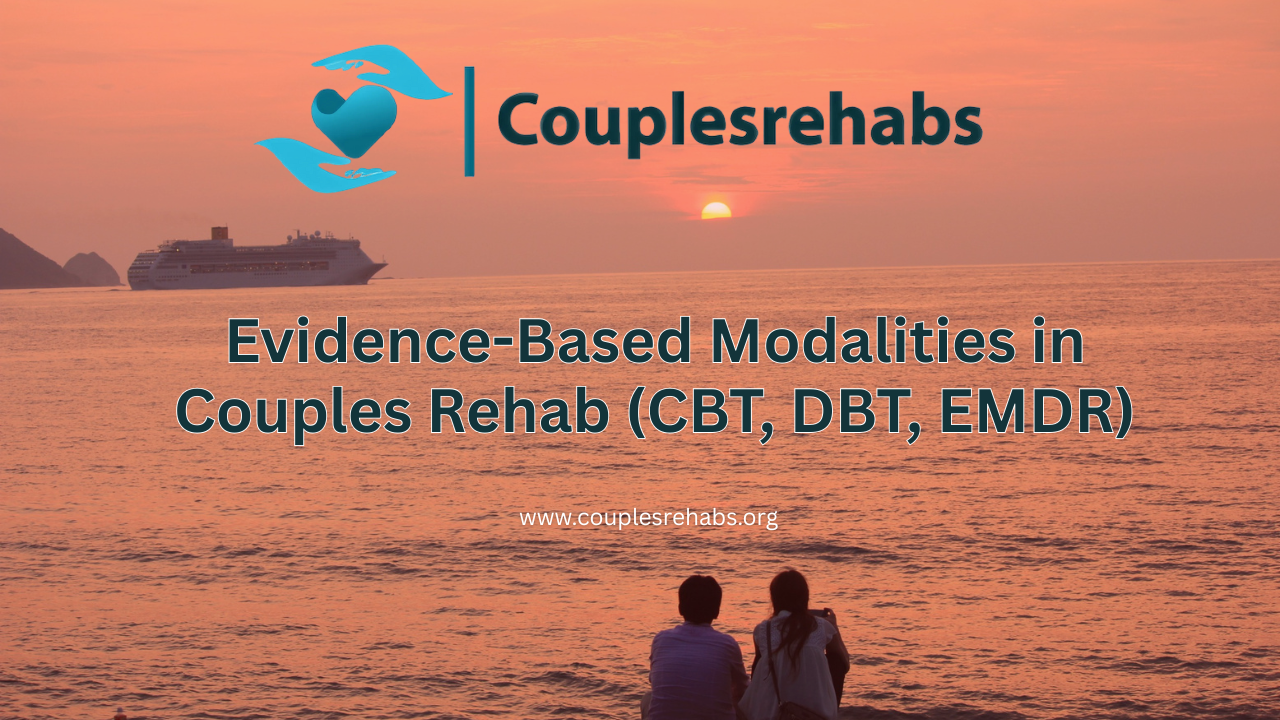
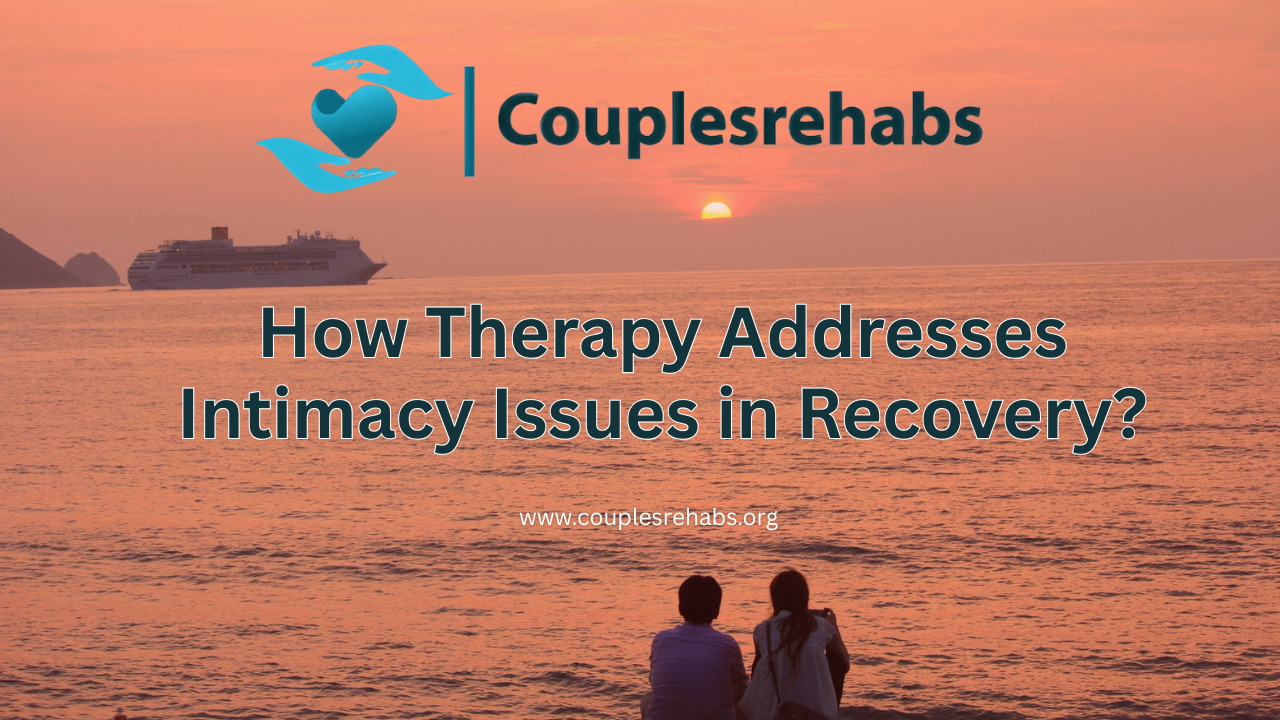

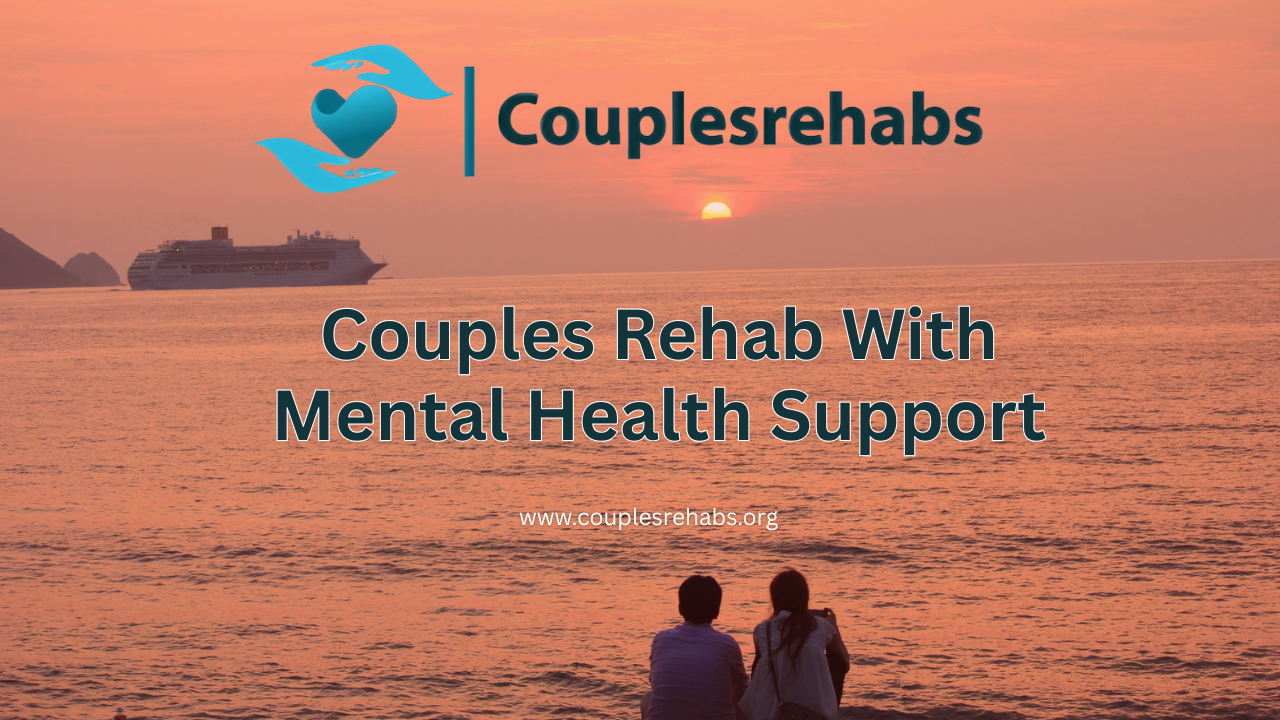

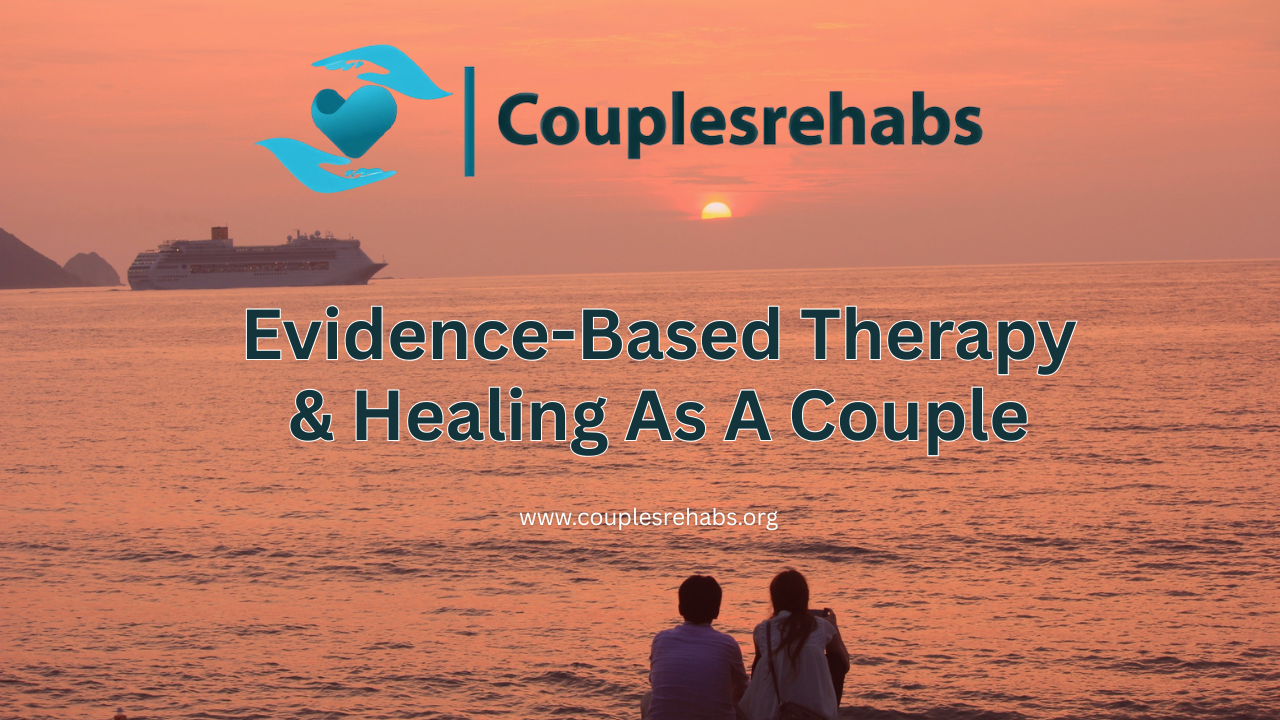


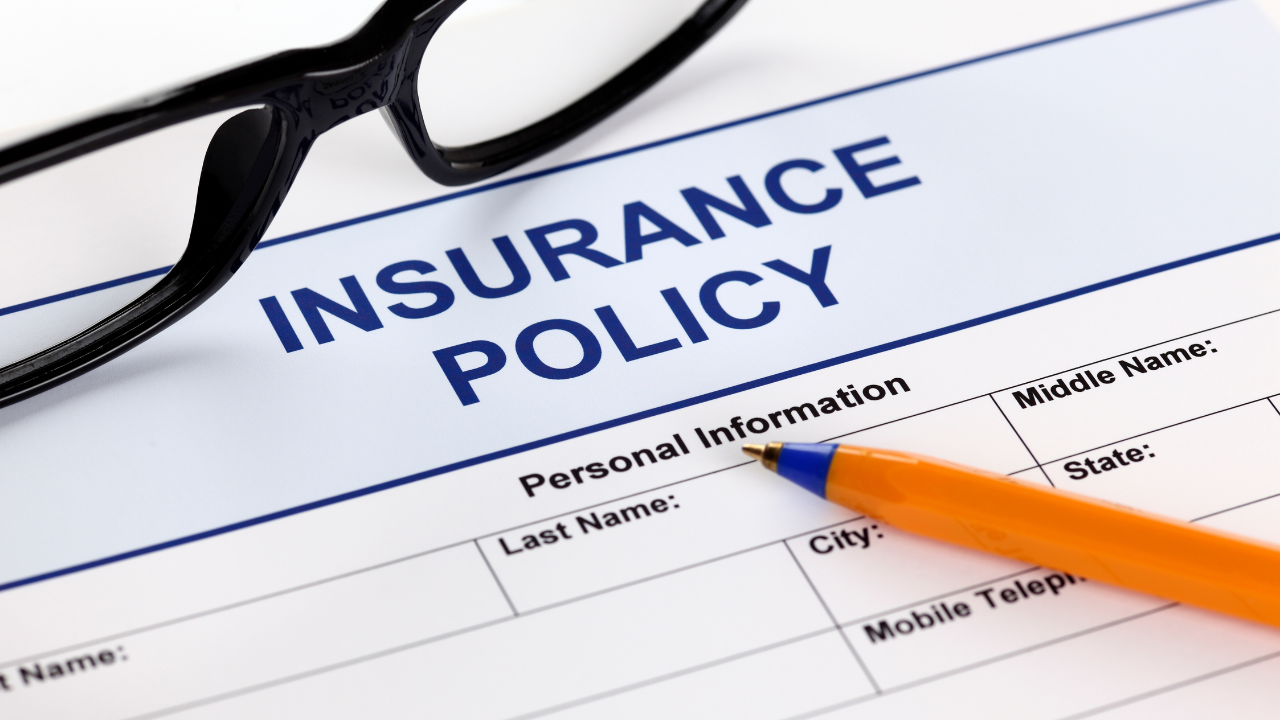
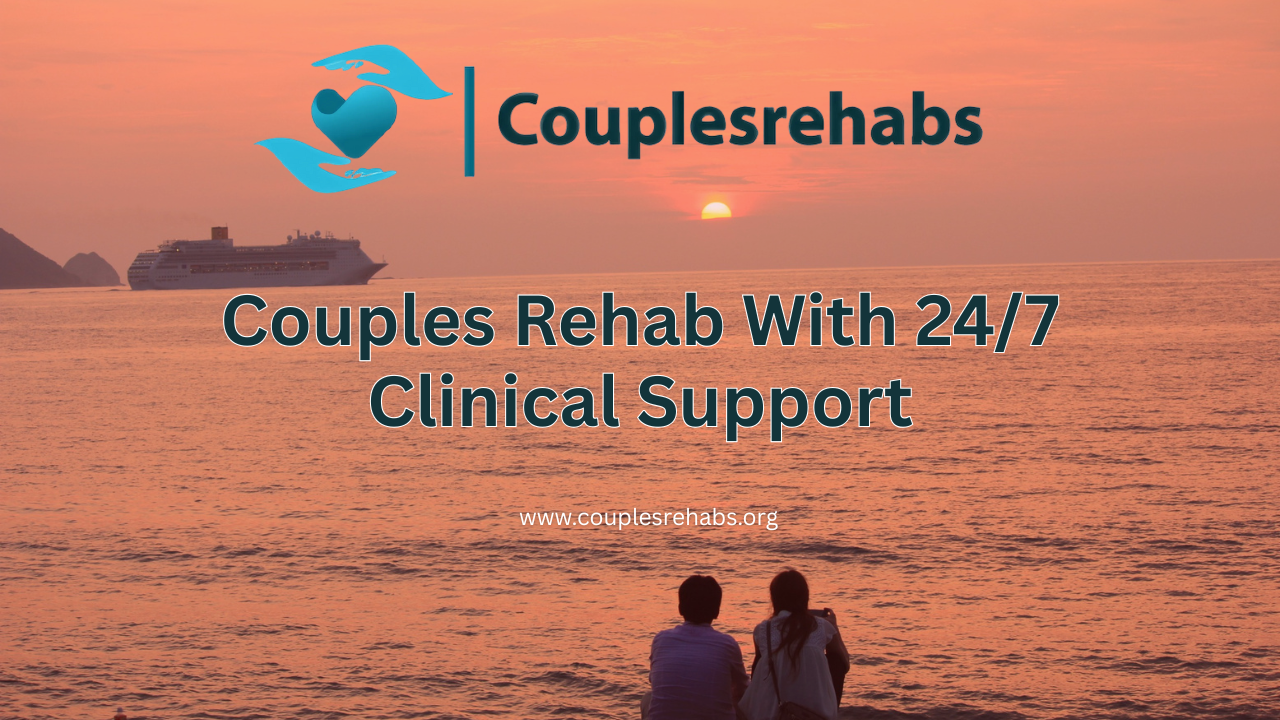
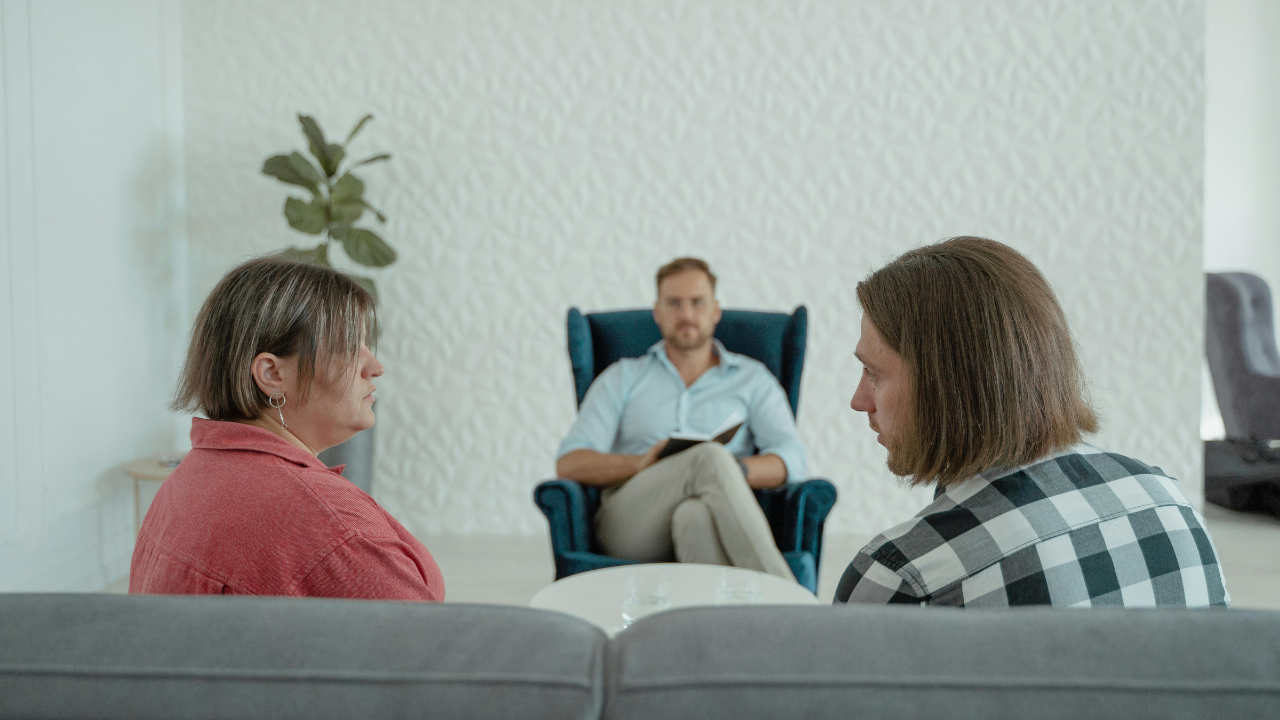
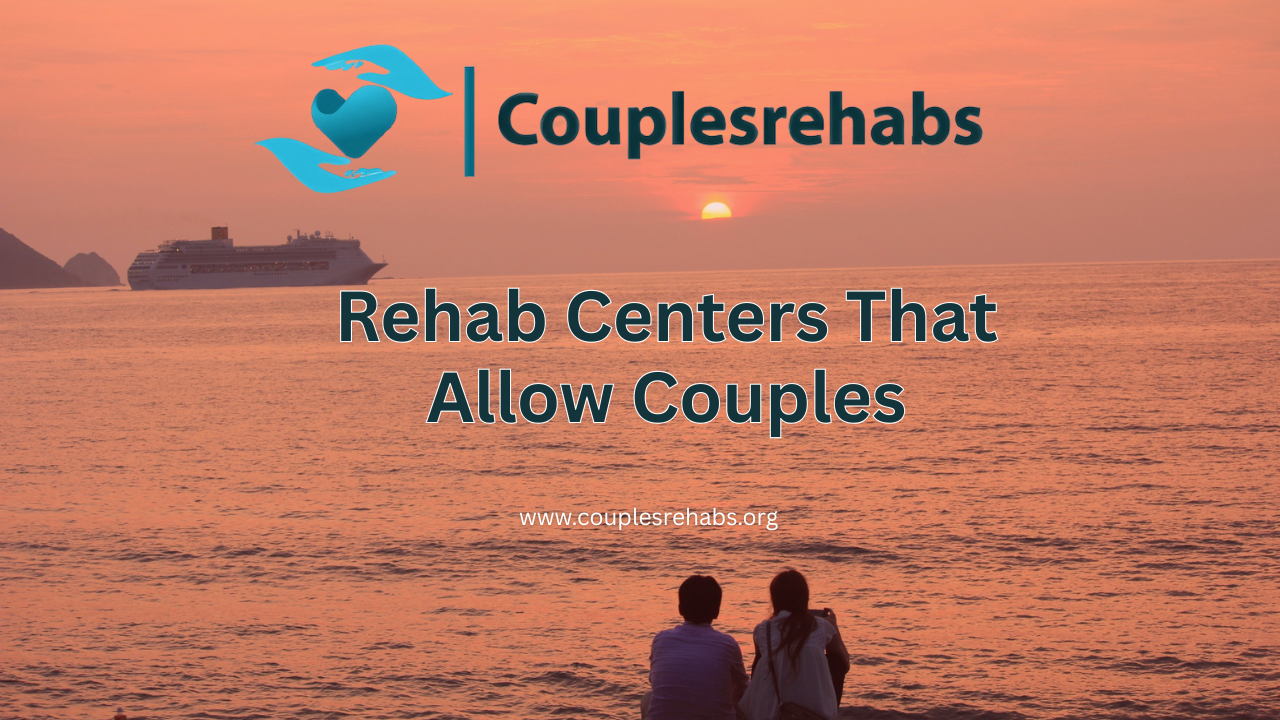




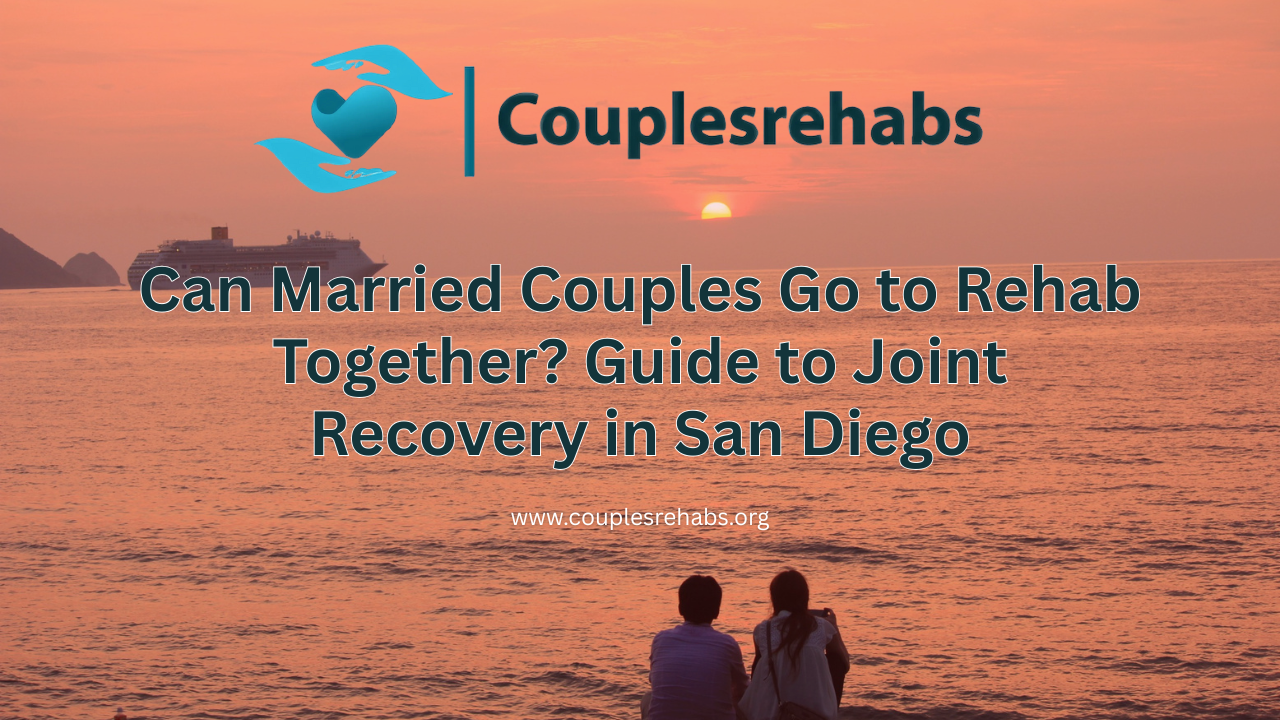



Recent Comments